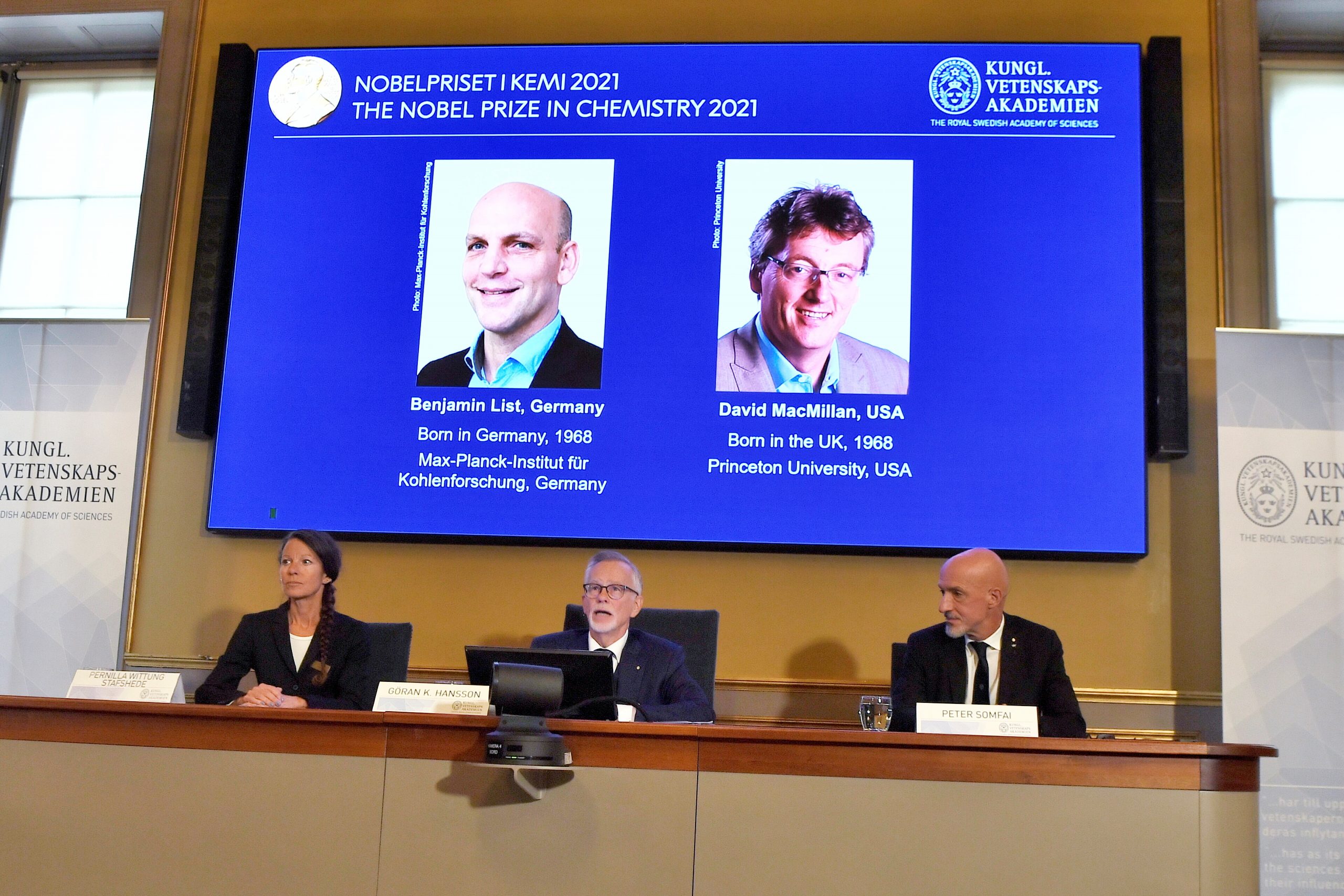
Lauren Moye, FISM NEWS
[elfsight_social_share_buttons id=”1″]
Most of the 2021 Nobel prize winners are now known. Scientists Benjamin List and David MacMillan joined the prestigious list of previous Chemistry prize recipients for revolutionizing how organic molecules are built. Journalists Maria Ressa and Dmitry Muratov were recognized as joint Nobel Peace Prize winners for their dedication to free speech despite personal risk.
List and MacMillan’s research from 2000 improved the efficiency of building molecules while also revolutionizing the process to become more environmentally friendly. Doing research independently of one another, these scientists developed a new manufacturing tool that has become known as asymmetric organocatalysis.
“Organic catalysts can be used to drive multitudes of chemical reactions,” the Royal Swedish Academy of Sciences said. “Using these reactions, researchers can now more efficiently construct anything from new pharmaceuticals to molecules that can capture light in solar cells.”
Modern industry frequently requires specific molecules to be built, like different types of plastic. Chemists use catalysts to encourage these molecules to form. Because catalysts can temporarily loan electrons to other atoms, they help break down existing molecule bonds or assemble new molecule bonds.
Older catalyst processes had two problems that made them impractical for most manufacturing systems. First, they often used a form of heavy metal that required a low-oxygen and moisture-free environment to work. The use of these metals is also harmful to the environment.
Additionally, catalysts often create molecules with two symmetrical shapes that are mirror images of one another. These different molecule orientations would be produced in equal amounts, even though chemists only need one specific molecule orientation.
The asymmetrical organocatalysts developed by List and MacMillan solve both problems. These catalysts use a stable carbon chain that also helps build a greater quantity of molecules in the desired shape.
The Nobel Assembly also awarded journalists Ressa and Muratov as the 2021 Peace winners on Friday “for their efforts to safeguard freedom of expression, which is a precondition for democracy and lasting peace.”
Ressa was born in the Philippines in 1963. She co-founded the investigative journalism website Rappler, which enables journalists to publish criticism of her native country’s president and his controversial decisions. Ressa and her company have faced charges in what various press associations view as an attempt to silence her voice.
Similarly, Muratov helped found Novaya Gazeta in 1993 and has served as its head editor since 1995. This newspaper investigates corruption and oppression within Russia. Those associated with the newspaper do so at the risk of their own lives.
The Nobel Committee stated they are “convinced that freedom of expression and freedom of information help to ensure an informed public. These rights are crucial prerequisites for democracy and protect against war and conflict.”
Two American scientists were awarded the 2021 Nobel Prize in Medicine earlier this week. FISM News previously reported that scientists Syukuro Manabe, Klaus Hasselmann, and Giorgio Parisi were awarded the 2021 Nobel Prize in Physics for their work involving natural systems and climate research.
On Thursday the 2021 Nobel Prize for Literature was awarded to novelist Abdulrazak Gurnah “for his uncompromising and compassionate penetration of the effects of colonialism.”
The 2021 Economic Science winner will be announced on Oct. 11.
